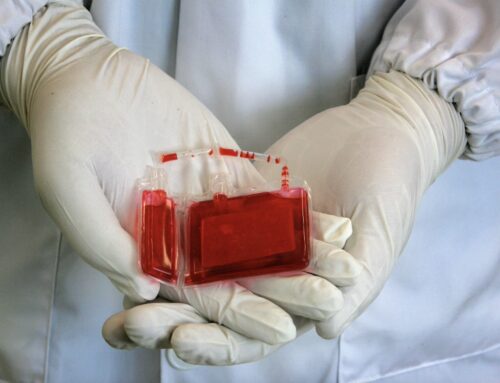What Is Rh Factor?
The Rh factor, also known as the Rhesus factor, is a protein that can be found on the surface of red blood cells. The Rh factor is inherited genetically and is determined by the presence or absence of the Rh antigen on the red blood cells. If your blood cells have this protein, you are Rh-positive. If your blood cells do not have this protein, you are Rh-negative.
The Rh factor is important in blood transfusions and pregnancy. In blood transfusions, it is essential to match the Rh factor of the donor’s blood with the recipient’s blood to prevent an immune reaction. In pregnancy, Rh incompatibility between a Rh-negative mother and a Rh-positive fetus can lead to hemolytic disease of the newborn (HDN), a condition in which the mother’s immune system attacks the baby’s red blood cells. This condition can be prevented with the use of Rh immunoglobulin (RhIg) injections given to the mother during pregnancy and after delivery.
Who Gets the Rh Factor Test?
The Rh factor test is typically performed as part of routine prenatal care for pregnant women to determine their Rh status. It is also performed in other situations where knowledge of the Rh status is important. The test is used to determine whether an individual is Rh-positive or Rh-negative.
Pregnant women are usually tested for the Rh factor early in pregnancy, often during the first prenatal visit. If a woman is found to be Rh-negative, she may need additional testing and treatment to prevent complications in future pregnancies.
The Rh factor test may also be performed in other situations, such as before a blood transfusion or if there is a need to determine Rh status for medical reasons. It is a simple blood test that can provide important information about a person’s blood type and potential risks associated with Rh incompatibility.
What is the Treatment for Rh Factor Incompatibility?
The treatment for Rh factor incompatibility, also known as Rh sensitization, depends on the specific situation. Rh incompatibility occurs when a Rh-negative mother is carrying a Rh-positive fetus, which can lead to the mother’s immune system producing antibodies against the Rh-positive blood cells of the fetus. This can cause hemolytic disease of the newborn (HDN), a condition that can be serious for the baby.
Treatment for Rh factor incompatibility may include:
- Rh Immunoglobulin (RhIg) Injections: RhIg injections are given to Rh-negative women during pregnancy and after delivery to prevent the mother’s immune system from producing antibodies against the Rh-positive blood cells of the fetus. RhIg works by blocking the mother’s immune response to the Rh-positive blood cells, reducing the risk of HDN in future pregnancies.
- Monitoring: Rh-negative women who are at risk of Rh sensitization may be monitored closely during pregnancy to check for signs of HDN in the fetus, such as anemia or jaundice. Monitoring may include regular ultrasounds and blood tests to assess the baby’s health.
- Treatment for HDN: If HDN develops in a newborn, treatment may include phototherapy to treat jaundice, blood transfusions to replace damaged red blood cells, and other supportive care measures.
- Prevention: Prevention of Rh sensitization is key, and Rh-negative women should receive RhIg injections as recommended during pregnancy and after delivery. RhIg injections are also given after certain events that can lead to exposure to Rh-positive blood cells, such as miscarriage, ectopic pregnancy, or trauma.
It’s important for Rh-negative women to receive appropriate prenatal care and follow their healthcare provider’s recommendations for RhIg injections to prevent complications associated with Rh factor incompatibility.




